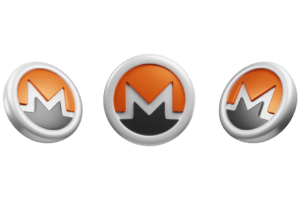Non-fungible tokens came to life in early 2021 when celebrities lauded generative art and profile picture projects like CryptoPunks as symbols of representation of a specific crypto community. Typically, these crypto tokens cannot be replicated, hence a vivid representation of real or digital asset ownership.
What is Intellectual Property?
According to the World Intellectual Property Organization, Intellectual Property (IP) refers to creations of the mind, such as inventions, literary and artistic works, designs and symbols, names, and images used for commercial purposes. Ideally, these works are protected by laws of the land (UK) that seek to prevent other parties from proceeds of profit or taking credit for something they did not create.
While laws protect NFTs, enforcement still remains a challenge, especially in the era of blockchain technology and the creation of technology, where certain NFTs have occasionally been made from stolen art, leading to lawsuits and questions over the right of ownership.
Sometimes, figuring out who really owns the rights to an NFT’s intellectual property isn’t straightforward. Legal experts James Grimmelmann, Yan Ji, and Tyler Kell from Cornell University pointed out in a blog post that slotting NFTs neatly into the usual copyright law system can be quite a puzzle.
Who Owns the IP of an NFT?
Cornell University folks also gathered that having an NFT doesn’t automatically give you control over the associated creative work. They explained that the creator needs to take specific actions against copyright law to recognize the NFT owner’s rights. Looking into various NFT projects, they found that only some take the necessary steps to align NFT copyrights with what the community expects.
In an article titled “Demystifying NFTs and Intellectual Property: What You Need to Know,” authors Elizabeth Ferrill, Soniya Shah, and Michael Young suggest that intellectual property laws like copyright, design patents, and trademarks might protect NFTs.
When you buy or mint an NFT, the blockchain’s smart contract automatically transfers ownership, including any rules tied to the NFT, such as purchase terms or resale opportunities. This often means that along with the NFT, a license explaining what collectors can and can’t do with their new asset gets transferred.
An example is when X, formally Twitter founder Jack Dorsey, sold his very first tweet as an NFT to Sina Estavi. Now, even though Estavi owns the unique token connected to the tweet, Dorsey still holds the copyright. So, Estavi can only go ahead and put the tweet on T-shirts or sell other stuff with it if Dorsey gives the go-ahead.
Whether the NFT you buy spells out these details, it’s a good idea to get familiar with different licensing terms.
Personal
Some NFTs don’t outright highlight intellectual property license and, according to Goldman, not specifying an IP license stipulates a personal license by default. Sequentially, you can only use the NFT artwork for non-commercial purposes with an individual license.
Commercial
Going for a commercial license means the creator can share certain rights with the buyer while still keeping ownership and control of the intellectual property.
What are the Solutions to NFT Challenges?
Scalability
- Look into faster and more efficient ways to process transactions, like using layer 2 solutions.
- Consider sidechains to ease the load on the main blockchain.
- Explore the idea of blockchain sharding to boost overall speed.
Environmental Concerns
- Switch to greener ways of validating transactions, like using Proof of Stake.
- Support and get behind NFT platforms that are kinder to the environment.
- Think about ways to offset the carbon footprint created by NFT projects.
Interoperability
- Push for industry standards, so different NFTs can work smoothly together (check out ERC-1155)
- Make it easier for NFTs to move between other blockchains
- Set up common rules for how data and smart contracts are handled.
User Education and Adoption
- Help newcomers with easy-to-follow guides.
- Get the word out about NFTs and what people can do with them.
- Partner up with popular brands and influencers to spread the word.
Legal and Copyright Issues
- Create and use smart contracts that automatically deal with copyright issues
- Work with legal experts to make sure the rules about owning NFTs are crystal clear
- Use decentralized IDs to prove who owns what.
Marketplace Integrity
- Let users build up a good reputation with decentralized ID systems
- Give people a say in how the platform is run with decentralized decision-making
- Use smart tech to monitor content and catch any scams or bad behaviour.
Fees and Transaction Costs
- Find ways to make transactions cheaper, like using tech that doesn’t cost as much
- Support platforms that are good at keeping fees reasonable
- Ask for updates to blockchains that help with these issues.
Cultural and Diversity Representation
- Encourage all kinds of artists to get involved with NFTs
- Make sure everyone feels welcome in the NFT community
- Support projects that help underrepresented groups get ahead.
Smart Contract Security
- Double-check smart contracts with experts to catch any mistakes
- Share the best ways to make sure smart contracts are safe
- Get everyone involved in finding and fixing problems in smart contracts.
Marketplace Congestion and Discoverability
- Make it easier for people to find what they want on NFT marketplaces
- Use tech to sort and show off the most interesting stuff
- Support ideas that make popular NFTs easier to buy and sell.
Remember, the NFT space keeps changing, more so in the UK. So, everyone must work together and come up with new ideas to deal with any new challenges.
Image Source: Adobe Stock
Disclaimer: This article is provided for informational purposes only. It is not offered or intended to be used as legal, tax, investment, financial, or other advice.









